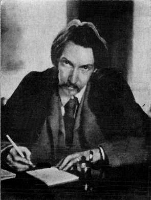Archive for July 2011
MS transcritions: new tag proposal and Why take so much trouble?
New MS transcrition tag proposed
RLA and myself have just placed a new tag in Editors’ Manual (Google Doc) for MS transcriptions (with square brackets instead of angle brackets because the latter are not accepted in this blog):
[dst] words-deleted-and-stetted [/dst] for a string that is deleted and then restored by ‘stet’ dots under the line
This avoids other clumsy and lengthy workarounds.
Why take so much trouble?
The need to make long diplomatic transcriptions and then proof them three times has been questioned (like every time one has to start doing one and realize how many hours it’s going to take). The answers I would give to this would be:
1. A diplomatic transcription is needed in order to proof the transcription efficiently – and going straight into a reading transcription involves making decisions that don’t get recorded.
2. Proofing is necessary because of the ease of making errors; three proofings should eliminate all errors, but recently with the ‘Whitman’ draft MS, RLA and myself agreed, that since this is a draft MS, not being used (like some others) as CT we could do two proofings only, as long as there were ‘only a small number’ of additional errors in the second proofing. We did both proofings the read-aloud way over skype and it worked very well – it would have been much more tiring with eye-proofing only.
3. The diplomatic trascriptions will become valuable when developing online resources such as MS images and accompanying transcription.
4. deleted passages can be interesting enough to be placed in notes or an appendix, and they can help interpretation of the remaining text. Here’s an example:
In Dr Jekyll and Mr Hyde, Dr Lanyon says, after he has seen Hyde transform into Jekyll, ‘I will die incredulous’, which many people must think means ‘I refuse to believe what I have just seen happen’. However, in the MS in the Morgan Library there are the deleted words ‘The shock of that moment… has not bowed the pride of my scepticism’ and then ‘I shall die, but I shall die incredulous’. The deleted words show that ‘incredulous’ is used here in an old sense of ‘not believing in revealed religion’ and this was mentioned in the explanatory notes.
However, it is a very long process. Quick progress can probably be made with fair MS used for setting up the text, where we can use a text file of the latter and make changes to create a transcript of the MS used for setting up the text (since the two should be close). But what Glenda is going to do with 800 pp. of MS for St. Ives, I don’t know – I’m hoping we could have a good group of volunteer transcribers for such a huge undertaking.
News from the volume editors: Prince Otto
by Robert Irvine
Editing a  Stevenson novel can involve some very small matters as well as some big questions. Robert Irvine describes how one of the smallest points of all—the hyphen—raises questions about historical usage.
Stevenson novel can involve some very small matters as well as some big questions. Robert Irvine describes how one of the smallest points of all—the hyphen—raises questions about historical usage.
First choices
I have been working recently to establish a ‘copy text’ of Stevenson’s 1885 novel Prince Otto. A ‘copy text’ is a particular instance of a text which is taken as a base-line by the editor, against which variations in other versions of the text can be listed, and variations from which in the final published version must be justified. We have chosen the first book edition to perform this function for the New Edinburgh Edition. So my first task as editor is to ensure that the electronic copy text on my screen conforms in all aspects to the text published by Chatto and Windus in 1885. In principle, no editorial decisions are to be made at this stage: where there are mistakes, even an obvious printing error like the omission of a quotation mark, those remain in the copy text, to be corrected when the text is edited and the correction noted.That pesky hyphen
No editorial decisions to be made in principle at this stage: but one set of editorial decisions is, in fact, unavoidable. In transcribing prose, we pay no attention to line-endings in the text from which we are transcribing, line-endings in prose being dictated by space available on the page, and nothing more. To preserve the line-endings in the transcription of a prose text irrespective of the size of your new page would be to turn it from prose into verse. But to make the most efficient use of the length of line available to him the type-setter of the printed text will sometimes split words at the end of a line with a hyphen. Usually the transcriber of the copy text can ignore these hyphens and restore the complete word. The problem comes when the word that has been split across two lines might have been hyphenated to start with. Deciding whether or not to preserve the hyphen in the copy text in such cases is no longer a case of simply preserving what is on the page in front of you, but requires reference to other sources of information: requires, that is, an editorial decision. Read the rest of this entry »
